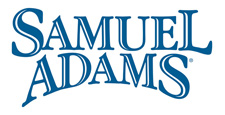
The brewery decided to distance itself from the parade when it became clear that negotiations between parade organizers and gay rights activists would prove fruitless.
Boston Beer wasn’t the only brewery to pull its sponsorship of a St. Patrick’s Day event, either. In New York, both Guinness and Heineken USA relinquished their support of the Big Apple’s parade for the same reasons.
In a statement obtained by the New York Times, a Guinness spokesperson explained the decision, saying the company “has a strong history of supporting diversity and being an advocate for equality for all.”
“We were hopeful that the policy of exclusion would be reversed for this year’s parade,” the statement read. “As this has not come to pass, Guinness has withdrawn its participation. We will continue to work with community leaders to ensure that future parades have an inclusionary policy,”
Similarly, Heineken USA released a statement proclaiming, “we believe in equality for all people. For that reason, we are no longer a sponsor of Monday’s parade.”
With the hullabaloo of St. Patrick’s Day in the rearview mirror, we can turn our attention to the issues that impact the beer industry throughout the other 364 days of the year (when beer isn’t green).
For instance, Anheuser-Busch InBev’s $4.3 million spent on lobbying efforts in Washington last year. The Motley Fool reports that 65-percent of that was dedicated to lobbying behind two beer-related bills: the BEER Act (45-percent) and the Small BREW Act (20-percent).
The latter act — which would enact a graduated barrel tax for brewers that produce less than 6 million barrels per year — has become a priority for the House Small Brewers Caucus and Senate Bipartisan Small Brewers Caucus, which seek to educate their peers on the craft industry at large.
The Beer Institute-backed competing BEER Act, on the other hand, would reduce excise taxes for all brewers and beer importers.
While both of those acts would have an impact on the entire beer industry, in Florida, craft brewers are concerned with a much smaller change to the status quo.
Craft brewers in the state are trying to get lawmakers to legalize 64 oz. growlers, which the Associated Press notes, are legal in 47 other states.
State Senate President Don Gaetz told the AP he doesn’t know why the half-gallon growlers are illegal, but that he will stand with the beer distributors in his district, which are pushing for “several provisions that the craft beer industry says will slow their rapid growth and could cause some to close.”
Specifically, Gaetz said he would back his friend Lewis Bear, an A-B InBev distributor.
“I’m with the beer distributors in my district,” he told the AP. “That’s a very important issue because one of my very best friends is an Anheuser-Busch distributor and he never talks to me about his business. It’s always about what are we going to do for disabled children, what are we going to do for the arts, what are we going to do for economic development. But this time he’s talking about growlers.”
Jennifer Gratz, an owner of Fort Myers Brewing Co., told the AP that the senator’s position is “sad.”
“Here we have the Senate president who’s supposed to represent all of us in Florida and instead he’s talking about just supporting his buddy who happens to be a large donor.”
According to the article, Bear, his company, and his family, have donated hundreds of thousands of dollars to both political committees and candidates.

Production of the limited beer, which is being released today, has doubled every year since 2005, according to the article.
It adds that the brewery now buys approximately 3,500 bourbon barrels a year for KBS, Backwoods Bastard, and other barrel-aged offerings.
With all that, however, Dave Engbers, brewery co-founder and vice president, said supply will likely never meet the demand.
“This is a beer that’s really driven by consumers,” said Dave Engbers, brewery co-founder and vice president. “Part of our philosophy is that we want our beer to be discovered. We don’t want to push it on people. This one found its way into the hearts of the beer community.
